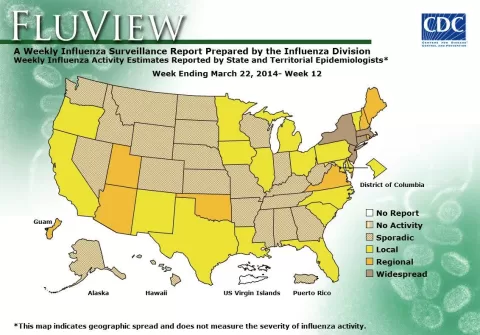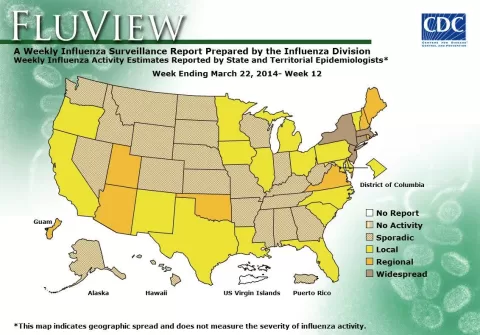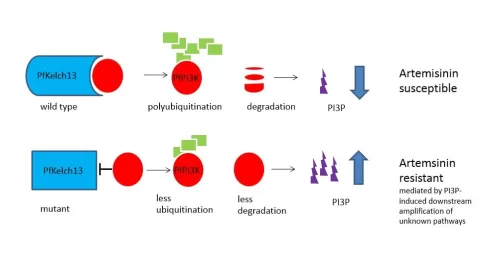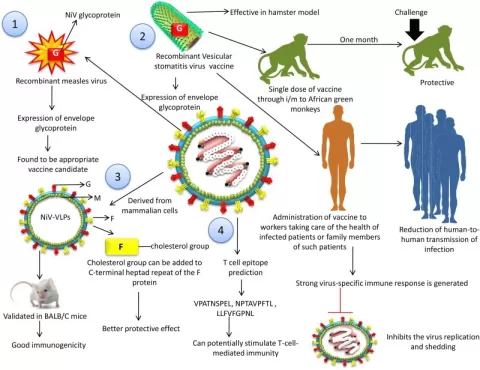Vaccine trust is a critical component in public health, particularly as discussions surrounding immunization evolve. In light of recent political developments, concerns about vaccine misinformation have surged, prompting a closer look at the upcoming CDC vaccine meeting. The Advisory Committee on Immunization Practices (ACIP) is poised for significant changes, which could impact the vaccine recommendation process and increase vaccine safety concerns among the public. With the rise of anti-vaccine rhetoric, it is vital to foster vaccine confidence through transparent and unbiased scientific discussions. The outcome of this meeting may either bolster or undermine community trust in vaccines, highlighting the importance of addressing these pressing issues comprehensively.
When we discuss vaccine confidence, we refer to the faith individuals have in immunization practices and the entities that oversee them. Recent trends have shown a troubling increase in skepticism fueled by vaccine misinformation, especially in light of potential shifts in how the CDC conducts its advisory meetings. Alternative terms like immunization credibility and inoculation reliability have gained traction as critical themes in the conversation about public health. As we approach the CDC’s impending Advisory Committee on Immunization Practices (ACIP) meeting, it becomes increasingly apparent that the manner in which vaccine recommendations are communicated will significantly affect community perceptions and adherence. Understanding these nuances is essential for fostering an environment where informed choices about vaccinations can thrive.
Understanding Vaccine Safety Concerns
Vaccine safety concerns have been a prominent topic in public discourse, often stemming from misinformation and misrepresentation of vaccine data. While vaccines undergo rigorous testing before being approved by health authorities like the CDC, fears rooted in misconceptions can create a chasm between scientific evidence and public perception. Providing transparent and continuous education about vaccine ingredients and the thorough processes they go through can help bridge this gap, ensuring communities understand that the potential risks are significantly outweighed by their protective benefits.
Moreover, by engaging in open dialogues regarding vaccine safety, public health officials can directly address the issues fueling fear. For instance, presenting data from trusted sources, alongside real-life testimonials about the effectiveness of vaccines, can empower communities to make informed decisions. The mistrust surrounding vaccines often originates from sensationalized narratives that neglect the substantial body of research confirming vaccine effectiveness, thereby necessitating a more balanced informational approach.
The Role of ACIP in Vaccine Recommendations
The Advisory Committee on Immunization Practices (ACIP) plays a critical role in shaping U.S. vaccination policy by providing expert recommendations. These recommendations are grounded in extensive scientific evaluations, examining factors such as safety, efficacy, and public health impact. Change within this committee, particularly influenced by political appointments, could lead to a deviation from established protocols that prioritize scientific integrity. This shift raises valid concerns about the objectivity and qualifications of the advisory members, potentially compromising the credibility of vaccine recommendations.
The integrity of ACIP’s process is crucial not just for developing recommendations but also for maintaining public trust in vaccination programs. When citizens perceive a lack of transparency or expertise in such decision-making bodies, it can exacerbate vaccine hesitancy. Thus, it’s essential for ACIP to reaffirm its commitment to rigorous scientific standards and transparent discussions to enhance confidence in the vaccines being recommended.
Addressing the nuances of its meeting procedures and ensuring only qualified experts provide testimony will be key to regaining trust. The ongoing narrative surrounding vaccine skepticism will benefit from a reestablished assurance in ACIP’s processes to mitigate the growing vaccine misinformation problem.
Combatting Vaccine Misinformation
Vaccine misinformation continues to pose a formidable challenge in public health, often overshadowing scientific data and fostering distrust among the general population. In this scenario, misinformation can spread faster than corrective measures, creating a false dichotomy of vaccine risks. By actively combatting this misinformation with factual data, health institutions can restore faith in vaccine safety and efficacy. Efforts must focus on accurate communication and engagement strategies that demystify vaccines and clarify misconceptions.
Strategies such as leveraging social media campaigns, directly addressing common myths, and promoting stories from healthcare professionals can help counter vaccine misinformation. Collaborating with community leaders and influencers who share trusted voices can also form powerful conduits for relaying factual vaccine information. By fostering environments based on trust and communication, health authorities can confront misinformation and enhance the narrative around vaccine benefits.
The Political Influence on Vaccine Discussions
The intertwining of politics and vaccine discussions has significantly altered the landscape of public health. Political influence on organizations like the CDC can introduce biases that detract from the objective evaluation of vaccines. A notable example is the appointment of individuals with anti-vaccine sentiments to influential positions within advisory committees. Such appointments can skew discussions, divert focus from scientific evidence, and amplify fear rather than foster an understanding of vaccine benefits.
This political climate not only risks undermining the credibility of health institutions but can also exacerbate public distrust in vaccines. The nexus of political agendas and public health must be scrutinized to ensure that scientific integrity prevails. Moving forward, policymakers should prioritize the reinstatement of unbiased, evidence-based practices in vaccine discussions to rebuild trust in vaccination programs and mitigate the ripple effects of misinformation.
A New Approach to Vaccine Education
As the landscape of vaccine discussions evolves, a fresh approach to vaccine education is critically needed. Traditional methods of conveying information may no longer suffice in an era where misinformation spreads swiftly through social media and other outlets. Innovative educational strategies that are interactive and engage audiences can promote better understanding and acceptance of vaccines. This includes utilizing multimedia resources, workshops, and community engagement initiatives that not only inform but also address the emotional aspects of vaccine hesitancy.
Furthermore, fostering environments that encourage questions and dialogue can alleviate fears associated with vaccines. Education should not solely focus on vaccine benefits but also transparently address common concerns, providing comprehensive insights into the recommendation process and safety measures in place. By addressing misinformation proactively, public health advocates can reinforce the importance of vaccination, reaffirming trust in vaccines as vital tools for public health.
Highlighting the Health Benefits of Vaccines
The health benefits of vaccines cannot be overstated; they are critical in preventing life-threatening diseases and promoting public health. Vaccinations have been shown to drastically reduce the incidence rates of diseases such as measles, influenza, and pertussis. For example, recent reports estimate that vaccinations prevented millions of illnesses and thousands of deaths in just one flu season alone. Educating the public about these staggering impacts can help shift the narrative towards the positive outcomes of vaccination.
In discussions surrounding vaccines, emphasizing their contributions to broader community health and herd immunity is essential. By highlighting case studies that illustrate the success of immunization programs, public health advocates can paint a clearer picture of vaccines as not only individual protective measures but also as collective safeguards against outbreaks. This perspective fosters a better understanding of the value of vaccination to the individual and society alike.
Challenges with Vaccine Recommendation Processes
The vaccine recommendation process, particularly through committees such as ACIP, has faced scrutiny due to perceived changes in its structure and approach. With recent political influences impacting the appointment of committee members, concerns arise about ensuring that recommendations remain rooted in scientific credibility and impartial evaluations. The ongoing challenge lies in separating political motivations from public health imperatives, ensuring that vaccine recommendations are made based on empirical evidence rather than personal or ideological biases.
Maintaining the integrity of the recommendation process is paramount to upholding public trust in vaccines. Continuous monitoring and evaluation of the appointment procedures, alongside active vetting of presentations offered at committee meetings, can help restore confidence. Ultimately, a transparent vaccine recommendation process will assure the public that the health priorities of the community are centered in well-researched, unbiased scientific evidence.
The Importance of Open Dialogue in Vaccine Discussions
Establishing an open dialogue about vaccines is crucial in fostering trust and understanding among communities. Direct conversations that incorporate the concerns and sentiments of community members can significantly impact public perception. Instead of dismissing doubts around vaccines, public health advocates should engage in constructive discussions that validate concerns while providing evidence-based responses. This symbiotic dialogue can help that citizens feel heard and respected in their inquiries while facilitating a better understanding of the importance of vaccines.
Additionally, creating platforms for voices from both the medical community and vaccine-hesitant populations fosters inclusion and education. Forums, Q&A sessions, and workshops that address critical misconceptions allow individuals to express their worries while receiving scientifically accurate responses. By nurturing an environment where questions are welcomed and answered comprehensively, health organizations can mitigate fears associated with vaccination and promote informed decision-making.
Promoting Vaccine Trust Amidst Misinformation
In an era of rampant misinformation, building trust in vaccines is paramount. Vaccine trust can be bolstered by consistent, factual communication and engagement from reputable health organizations. Ensuring that the information disseminated addresses common fears, presents transparent data, and highlights the positive impacts of vaccines is crucial. Trust can only be cultivated through a commitment to honesty and by actively working against misinformation that undermines public perception of vaccines.
Additionally, collaboration with local health initiatives can enhance community trust; when local voices advocate for vaccines and share personal success stories, it can resonate more deeply with the public. This grassroots approach creates a supportive environment where vaccine conversations can flourish, significantly diminishing skepticism. Long-term trust is built on sustained efforts, consistent messaging, and a clear demonstration of the positive impacts vaccines have on public health.
Frequently Asked Questions
What is vaccine trust and why is it important in the context of ACIP meetings?
Vaccine trust refers to the confidence that the public has in the safety, efficacy, and importance of vaccines. It is essential in the context of ACIP meetings because these meetings are supposed to promote transparent and evidence-based discussions regarding vaccine recommendations. A decline in vaccine trust can lead to vaccine hesitancy, impacting public health and increasing the incidence of preventable diseases.
How does vaccine misinformation impact public trust in vaccines?
Vaccine misinformation significantly undermines public trust in vaccines by spreading doubts and misconceptions regarding their safety and efficacy. This misinformation can stem from various sources, including social media and public figures, fostering skepticism that may dissuade individuals from vaccination. Addressing and countering vaccine misinformation is crucial to restoring public confidence and ensuring high vaccination rates.
What changes in ACIP meetings have raised concerns about vaccine trust?
Recent changes in ACIP meetings, particularly concerning the appointment of committee members with questionable backgrounds, have raised concerns about vaccine trust. The inclusion of individuals known for anti-vaccine activism, without thorough scientific vetting by the CDC, could lead to biased presentations and discussions that emphasize vaccine fears over their proven benefits, potentially eroding public confidence in vaccine safety.
Why is the vaccine recommendation process critical for maintaining vaccine safety concerns?
The vaccine recommendation process is critical for maintaining vaccine safety concerns as it involves rigorous evaluation of scientific data regarding vaccine efficacy, safety, and public health outcomes. Ensuring this process remains transparent and devoid of political influence is vital for upholding public trust in vaccination as it reassures the public that recommendations are made based on sound scientific evidence, not fear or misinformation.
What role do ACIP meetings play in addressing vaccine safety concerns?
ACIP meetings play a crucial role in addressing vaccine safety concerns by serving as a forum where experts present evidence-based findings on vaccine-related topics. These discussions inform vaccination guidelines and recommendations, helping to clarify the benefits and risks associated with vaccines, ultimately contributing to the public’s understanding and trust in vaccines.
How can the CDC rebuild vaccine trust after controversies during ACIP meetings?
To rebuild vaccine trust after controversies during ACIP meetings, the CDC must focus on transparency, clarity, and adherence to scientific rigor in its communications. Engaging with the community, providing clear data on vaccine benefits, and addressing safety concerns openly can help mitigate the distrust that may arise from perceived political influences. Collaborations with trusted public health figures can also aid in restoring confidence.
What impact does the emphasis on vaccine fears have on public health?
The emphasis on vaccine fears, without adequate context regarding their benefits, can lead to decreased vaccination rates, resulting in increased outbreaks of preventable diseases. This trend undermines public health efforts and puts vulnerable populations at risk, highlighting the need for balanced discussions that acknowledge both risks and the proven protective roles of vaccines.
How do vaccine recommendation discussions at ACIP meetings influence public perception?
Discussions on vaccine recommendations at ACIP meetings significantly influence public perception by shaping the narrative around vaccine safety and efficacy. If these discussions highlight fears and concerns without equally addressing the benefits of vaccinations, it can skew the public’s understanding and foster skepticism, thereby impacting vaccination uptake and community immunity.
| Key Point | Details |
|---|---|
| ACIP Meeting Shift | The upcoming ACIP meeting signifies a departure from science-backed discussions, raising concerns about transparency. |
| Controversial Appointments | HHS Secretary Robert F. Kennedy Jr. appointed individuals with anti-vaccine histories, leading to questions about their qualifications. |
| Change in Presentation Approach | ACIP will feature presentations from anti-vaccine advocates without CDC vetting, indicating potential bias. |
| Reduced Planning and Expertise | Political decisions have led to less rigorous meeting preparations and the removal of qualified professionals. |
| Emphasis on Risks Over Benefits | While risks associated with vaccines will be discussed, little attention will be given to their clear benefits. |
| Public Health Implications | The lack of information on vaccination benefits may mislead public perceptions and decrease immunization rates. |
Summary
Vaccine trust is increasingly challenged by political influences on vaccine advisory discussions, as seen in the upcoming ACIP meeting. This meeting represents a pivotal moment that could undermine public confidence in vaccines by prioritizing vaccine skepticism over scientifically-backed evidence. The departure from traditionally rigorous vetting processes and a focus on fear rather than benefits could threaten not only public trust but also public health. For effective vaccine communication, it is essential to restore confidence through transparent, evidence-based discussions, ensuring that the benefits of vaccines are clearly communicated to the public.
The content provided on this blog (e.g., symptom descriptions, health tips, or general advice) is for informational purposes only and is not a substitute for professional medical advice, diagnosis, or treatment. Always seek the guidance of your physician or other qualified healthcare provider with any questions you may have regarding a medical condition. Never disregard professional medical advice or delay seeking it because of something you have read on this website. If you believe you may have a medical emergency, call your doctor or emergency services immediately. Reliance on any information provided by this blog is solely at your own risk.








